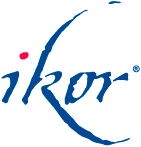Financial abuse is the theft or embezzlement of money or any other property from an elder. It can be as simple as taking money from a wallet and as complex as manipulating a victim into turning over property to an abuser through undue influence. The annual financial loss by victims of financial abuse is estimated to be at least $2.9 billion dollars (Metlife, 2011). Many victims of financial abuse do not report the abuse due to: fear of retaliation, fear of legal consequences for family members, too embarrassed and they are not sure who to turn to.
Strangers make up 51% of the abusers and target victims who are out shopping, driving or managing financial affairs. Strangers typically look for flags of vulnerability such as handicap tags on cars, canes or displays of confusion (Metlife, 2011).
It is hard to believe that family and friends make up 34% of the abusers (Metlife, 2011) Family members and friends who take advantage may: have substance abuse, gambling or other problems, stand to inherit and feel justified in taking what they believe is “almost” or “rightfully” theirs, fear that the older family member will use up their savings, depriving the abuser of an inheritance. Women over the age of 80 are the most likely victims of financial abuse. Twice as many females as males are victims! (NCEA, 2011).
WARNING SIGNS
· Family member moving in without an agreement/shared cost.
· Caregivers who asks questions about finances.
· Change in spending patters, such as buying items he/she doesn’t need and cannot use.
· Family talking over the senior while in your office making decisions.
· Unpaid bills/bounced checks.
· Unexplained discrepancy between known income and standard of living.
· Possessions disappearing.
· Utilities turned off/not paid on time despite person having adequate income.
· Age and sex (women over 80 most vulnerable)
· Unusual bank activity, frequent withdrawals from automatic teller.
· Appearance of a stranger who begins a new close relationship and offers to manage the elders finances and assets.
WHAT CAN YOU DO?
· Be aware of circumstances/vulnerabilities.
· Ensure financial checks and balances.
· Check references/background checks of in-home helpers (especially private caregivers!)
· Consider monitoring of checkbook.
· Understand family members can be the abusers.
· Prevent caregiver overload and burnout.
· Know how challenging Alzheimer's and other dementias can be fore caregivers and give resources for help in home/respite care.
· Refer to IKOR as the expert when your client looks to you for life answers and you need resources to help with health and wellness concerns.
WHAT CAN IKOR DO?
IKOR is in the business of providing medical and financial advocacy and guardianship for seniors as well as the disabled of all ages. We provide a total-person assessment followed by both a short-term and long-term strategic plan. Our plan includes medical, environmental and psycho-social aspects. We then coordinate the care in order for our client to meet the goals set.
You can contact us if you suspect predatory behavior in finances, daily living, or care management but are not certain. We can conduct credit reports on the senior to look for suspicious activity. We can take over bill pay services to protect your client from family predators. We do background checks on all “professional caregivers”.
Stress and overload of caregivers can increase abuse and neglect (both physical and financial). If family members and/or caregivers are showing signs of stress and overwhelmed in managing care, we can help. We can recommend and help find
We improve quality of life and decrease vulnerability by assessing hearing, vision, gait, depression, cognition level (perhaps due to medication contraindications), and recommend a plan to help the senior live the most independent life possible.
Financial abuse is a crime! If you know of someone who is being taken advantage of call your local Adult Protective Services!
Metlife (June, 2011). The Metlife Study of Elder Financial Abuse. Retrieved from https://www.metlife.com/mmi/research/elder-financial-abuse.htm#keyfindings.com Retrieved July 26, 2013.
National
Committee to Prevent Elder Abuse (NCPEA) (2008). Preventing the Abuse of
Elders. Retrieved from
www.preventelderabuse.org. Retrieved July 29th, 2013.




